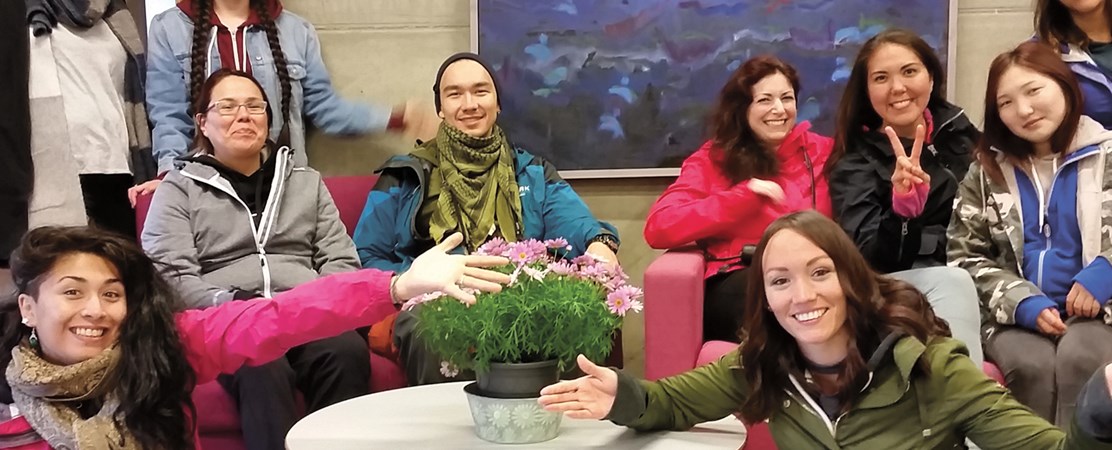Connecting People and Cultures: Northern Nursing Network

By Lorna Butler, Lead of the UArctic Thematic Network on Northern Nursing Education, Senior Strategist, Distributed and Technology Enhanced Learning and Discovery, University of Saskatchewan and Heather Exner-Pirot, Lead of the UArctic Thematic Network on Northern Nursing Education, Strategist for Outreach and Indigenous Engagement, University of Saskatchewan and Bente Norbye, Professor in Health Care Education, UiT The Arctic University of Norway
In almost every community of the Circumpolar North, nurses often deliver health care in small clinics far away from tertiary hospitals and specialists.
For decades most nurses working in northern communities have been recruited from the South, filling gaps in the local nursing workforce. A growing number of UArctic colleges and universities are working hard to educate northern nurses in the North to build a more stable, culturally competent and representative health care system.
The UArctic Thematic Network on Northern Nursing Education evolved as a result of the desire to learn best practices for delivering nursing education to remote northern regions. This necessitated partnerships with nursing programs that understood a northern context. The inaugural meeting of the Northern Nursing Education Network (NNEN) was held in Reykjavík, Iceland in April 2015 with representatives of northern nursing programs from Russia, Finland, Norway and Canada. The network has since grown to include twelve UArctic institutions from seven Arctic states, adding Greenland, Sweden and Iceland to the participating countries.
A key activity is the annual International Innovative Learning Institute on Circumpolar Health, a two-week field school designed to advance northern nursing students’ understanding of the determinants of health across the Circumpolar North. Three have been held so far in Yakutsk, Russia (2015), Saskatchewan, Canada (2016) and Tromsø, Norway (2017), with the next one to be organized in Greenland in 2019.
Is there value to looking at nursing education and health care from a circumpolar perspective? As one nursing student from the Northwest Territories who attended the 2017 field school in Norway said, “I discovered more about my culture, and about the similarities of cultures across the Circumpolar North despite the vast distances. I was amazed to hear that my colleague from Greenland and I shared cultural similarities such as hunting styles, clothing, language and traditional diet. My colleagues from Russia and I discussed similarities in traditional beading and handiwork when they noticed my beaded purse. I was delighted to discover that my Inuvialuit ancestors utilized the same sod-style houses as those traditionally used by the Sámi. I was empowered learning about the process towards self-determination that the Sámi have accomplished and continue to accomplish. It gives me hope that with strength and determination my own people are headed in the right direction towards truth and reconciliation.”
I To promote better knowledge of northern-specific health care challenges and characteristics for the next generation of northern health professionals, the NNEN is in the process of creating an open education online resource dedicated to northern and indigenous health and health care. This resource has engaged almost fifty authors and experts from all Arctic nations and will be launched at the International Congress on Circumpolar Health in Copenhagen, Denmark in August 2018. The NNEN has made it possible for nursing faculty and students across the Arctic to jointly explore northern and indigenous health issues, histories and contemporary challenges. Connecting people and cultures has created a supporting network in nursing education across the Circumpolar North.
